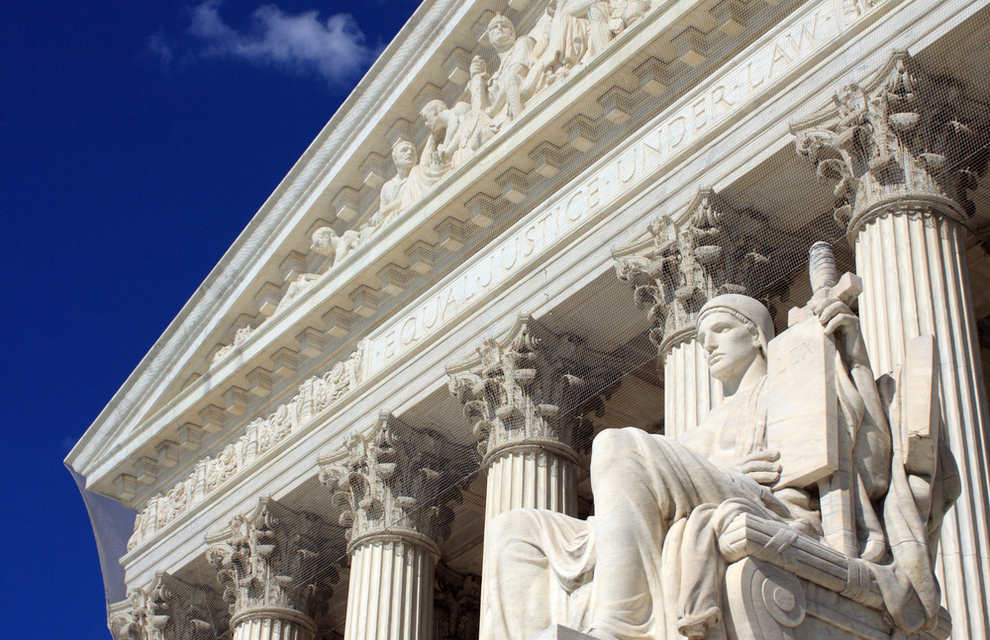The US Supreme Court has agreed to hear CIC Services’ case against the Internal Revenue Services (IRS) regarding IRS Notice 2016-66.
CIC Services explained that the issue at hand is whether or not the IRS can continue to systematically enforce obviously illegal regulations against taxpayers merely because those regulations are enforced by an illegal ‘penalty tax’.
Sean King, general counsel for CIC Services, argued: “Under the Anti-Injunction Act, courts are not permitted to restrain the IRS’s attempts to assess or collect taxes against taxpayers.”
He stated: “The IRS interprets this to mean that it is free to issue even obviously illegal regulations and that by simply subjecting those taxpayers who fail to comply with that illegal rule to an also illegal ‘penalty tax’, courts are magically prohibited from enjoining enforcement of the illegal rule because doing so would have the effect of prohibiting the IRS from collecting the illegal penalty ‘tax’ from those who fail to comply.”
Adding that this, the IRS contends, would violate the Anti-Injunction Act, according to King.
CIC Services said that exempting an illegal regulation from judicial review simply because it’s enforced by an equally illegal penalty tax is both ‘tyrannical and unconstitutional’.
“The plain language of the Anti-Injunction Act does not lend itself to the IRS’s interpretation. And reading it the IRS’s way creates an unnecessary constitutional problem. For that reason and others, we are confident of victory”, King noted.
Randy Sadler, who leads CIC Services’ marketing and client empowerment, added: “Administrative state overreach is a threat to all Americans and constitutional principles in general.”
He continued: “So this case has significance far beyond just the immediate issue at hand.”
Also commenting on the decision, Benjamin Whitehouse, attorney at Butler Snow, said: “Many in the captive insurance industry will welcome this opportunity to have the Supreme Court scrutinise the current approach by the IRS to indiscriminately use its most coercive enforcement weapons against all micro-captives, regardless of their underlying merits.”
“The case itself hinges on the application of the Anti-Injunction Act, which prohibits injunctions against the IRS by taxpayers for attempting to collect taxes. CIC Services argues that they aren’t trying to stop the IRS from any collection efforts, instead objecting to what they see as overreaching and expensive compliance mandates that were imposed without any formal rulemaking.”
He argued: “This case has also drawn a lot of interest from those outside the captive industry who are gravely concerned about the expanding power of the federal bureaucracy to unilaterally make policy decisions that have severe consequences for small businesses without notice or the ability of any member of the public to provide any sort of meaningful comment.”
Ryan Work, vice president, Self-Insurance Institute of America (SIIA), stated: “The Supreme Court’s hearing of the CIC Services case is a positive step forward for the industry, meaning there will be a full review in the most important court in the land on the expansion and overburdensome regulatory actions of the IRS.”
“Taxpayers deserve the ability to not only have IRS notices and activities reviewed and overseen fairly, but to be able to appeal regulatory burdens through pre-enforcement challenges."
CIC Services’ first lawsuit against the IRS and US Treasury was in December 2016 in a bid to block Notice 2016-66. CIC Services, who lost a court case against the IRS in 2017, went on to appeal the decision at the US Sixth Circuit Court of Appeals but it was later denied.
Additionally, in August 2019, the Sixth Circuit denied CIC Services’ petition for en banc review by a 9 to 7 vote.
Despite being denied, the seven dissenting judges wrote an opinion in CIC Services’ favour.
Work highlighted that "with a largely split-decision from the lower court, having the Supreme Court agree to consider this case in its next term is good news, and has broad implications for a number of American industries that face a similar burden of being found guilty by the IRS before being able to prove innocence”.
King concluded: “We would not be here without the support of our various lawyers, the Antonin Scalia Supreme Court Legal Clinic of the George Mason Law School, various captive insurance regulators and industry associations, and many more.”
“We also wish to thank all those who submitted ‘friend of the court briefs supporting our cause including the United States Chamber of Commerce, the CATO Institute, Professor Kristin E. Hickman of the University of Minnesota School Of Law, the Captive Insurance Associations of Kentucky, Missouri, North Carolina, Oklahoma and Tennessee, and the Tax Clinic at the Legal Services Center of Harvard Law School. On behalf of CIC Services and our clients, we thank you and are humbled by your support.”






